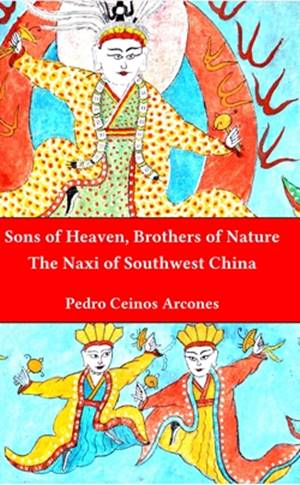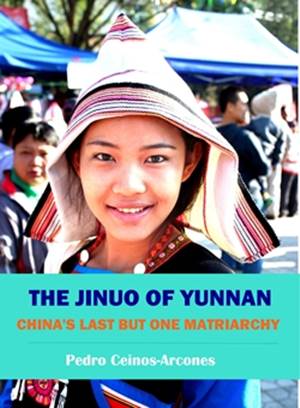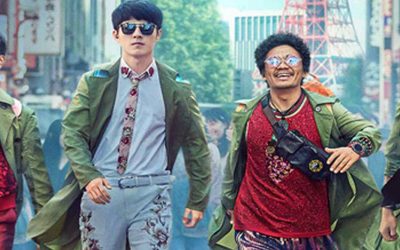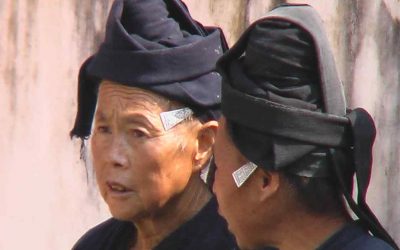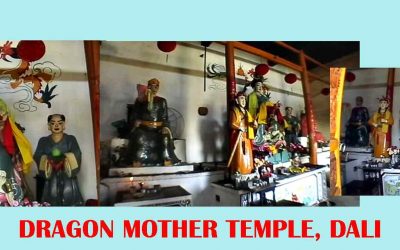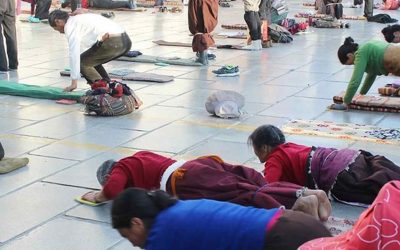In the fourth chapter of India in the Chinese Imagination: Myth, Religion, and Thought (edited by John Kieschnick and Meir Shahar, University of Pennsylvania Press, 2014), Nobuyoshi Yamabe contributes an article (Indian Myth Transformed in a Chinese Apocryphal Text: Two Stories on the Buddha’s Hidden Organ) about a rarely touched matter: The sexual organ of Sakyamuni Buddha.
This chapter is a discussion of two fairly peculiar stories found in the “Sūtra on the ocean-like samādhi of the visualization of the Buddha”, which was allegedly translated to Chinese by Buddhabhadra in the fifth century.
In the standard hagiography of Buddhism, the Buddha’s male organ is said to have been concealed and invisible from the outside. This is not the type of topic that receives major attention in Buddhist scriptures. The Ocean Sūtra has a chapter that is exclusively devoted to this topic, including some strange stories, one of which the author translates:
“A large ring of prostitutes came to Śrāvastī from Mathurā and were doing many evils. Three sons of a rich merchant Rulüda frequented their place and wasted their father’s money. Worrying about this, Rulüda went to King Prasenajit and asked him to execute all the prostitutes. However, the King kept Buddhist vows and did not want to kill people. Therefore, the King went to the Buddha and asked him to admonish the prostitutes.
The Buddha informed Sudatta that he would teach the prostitutes at a debate hall (shichang) in seven days. When the day came, the King beat a golden drum and made all debaters in the country come to the debate hall. All members of the sangha and the prostitutes were also summoned.”
“Then each of the great disciples of the Buddha created his own vehicle, such as a cave, nāgas, and a jewel tree, and, performing miracles in concentration, flew to the debate hall. Finally, the Blessed One led Ānanda and, walking in space, came to the debate hall. The Buddha took a seat and briefly taught about suffering, emptiness, impermanence, and the perfections (pāramitā) to the assembly, but the women did not accept [his teaching].
Among the group of women, a prostitute, Lovable by name, said to the women: “The ascetic Gautama has no desire by nature, and people say that he is impotent. That is why he denounces desire in public. If his bodily parts are complete, he should clearly show us that he has this mark like the Jains did. [If he does so], we will become his disciples. If he does not have this mark, he denounces impurity in vain. This person without an organ has no desire by nature; why would he not preach that desire is impure?”
[The prostitute] having thus spoken, the Tathāgata magically created an elephant. A white lotus emerged between the legs of the elephant and touched the ground. Having seen this, the women burst into laughter. They said to one another: “The ascetic is good at conjuration.” The Buddha also magically created an image of a horse king, who extended his retracted organ. It hung like a beryl cylinder and reached his knees. Having seen it, the women said even more that it was conjuration. After that, the Buddha dismissed the entire audience and confronted the prostitutes by himself. The women laughed loudly and said: “Ascetic, do you have the bodily part or not?” The Buddha said: “I have a complete male body. I am a sound man.”
At that time, the Blessed One opened his undergarment (nivāsana). [The women] saw the Buddha’s body, [which was] entirely flat. Then, [his organ] gradually emerged like that of a horse king. When it first appeared, it was like the bodily organ of an eight-year-old boy, and it gradually grew into the shape of that of an adolescent. Seeing this, all the women rejoiced. Then the hidden organ gradually grew [and became] like a cylindrical banner of lotus flowers. In each layer there were ten billion lotuses; each lotus had ten billion jewel colors; each color had ten billion emanation Buddhas; and each emanation Buddha was served by ten billion bodhisattvas and a boundless assembly.
Then the emanation Buddhas unanimously criticized the faults of the bad desires of the women. Upon hearing this, the prostitutes were overcome by shame and submitted to the Buddha’s teaching. Listening to the Buddha’s sermon, they reached spiritual attainments of various degrees.
More posts on Chinese culture
Travel to Guilin and enjoy China’s most beautiful landscape
Why must you travel to Guilin? Guilin is one of the most touristic cities and therefore one of the most visited. Most international tours include a stop in Guilin, at least the time to take the famous Li River cruise, and among domestic tourists, everyone is eager to...
Mao Dun – Rainbow, a beautiful metaphor about a woman and China
Mao Dun - Rainbow, a beautiful metaphor about a woman and China In short: This officially unfinished novel by the writer Mao Dun takes on a life of its own to become a model of the vital development of each person and at the same time of the social effervescence that...
Detective Chinatown III- The biggest blockbuster in China
Detective Chinatown III- The biggest blockbuster in China In Short: You can watch the movie, you will surely have a good time. You'll laugh at times, but you're not going to get much more out of it. And if you've seen the previous installments, you'll feel a bit...
How to prepare green tea to enjoy all its health benefits
How to prepare green tea to enjoy all its health benefits All people related to China have a vague idea that tea is good, our friends tell us so, sometimes an article appears in a newspaper or magazine, or the public relations of the tea houses or plantations that are...
Mao Dun’s Spring Silkworms-A must read
Mao Dun's Spring Silkworms-A must read In short: A set of stories of exacerbated realism by one of the finest pens of 20th century Chinese literature, which no one should miss in order to understand both the literature and the life and history of contemporary China....
Midnight by Mao Dun – a failed novel
Midnight by Mao Dun - a failed novel Before reading "Midnight", the masterpiece of Mao Dun, the most powerful Chinese writer in the twentieth century, reading the presentations of the Chinese edition, one wonders why such a great literary treasure is not better known...
More posts on China ethnic groups
Zhuang phallic ritual
Zhuang phallic ritual Zhuang minority has an interesting phallic ceremony. According to their legends, in antique times there was no communication between the two banks of the Hongshui River, women living on one bank of the river and men on the other. The god...
Zhuang Nationality in Wenshan Prefecture of Yunnan
Zhuang Nationality in Wenshan Prefecture Wenshan Zhuang and Miao Autonomous Prefecture lies in the eastern section of Yunnan Province. Scarcely visited by local and international tourists with populations not considered of enough interest by the academic world, is one...
History of the Zhuang nationality in China
History of the Zhuang nationality in China It is widely thought that the ancestors of the Zhuang were the ancient Yue. But there are no unanimity about the character, history and territory of these Yue. One people called “Yue” appears in the Chinese chronicles of the...
The Interpretation of the Dreams among the Hani
The Interpretation of the Dreams among the Hani As a general rule dream interpretation in China has followed a symbolic line, attributing to the memories of experiences lived during the dream a value related, sometimes not so clearly in a first analysis, to the values...
Temple to the Mother of the Dragon of the Bai
Temple to the Mother of the Dragon of the Bai Everyone who visits the ancient city of Dali goes to see the famous Three Pagodas, as it is one of the most famous monuments of the city and all of Yunnan, but very few know that right in the village next door, just 100...
Unconventional languages used by the Jinuo
Unconventional languages used by the Jinuo Not having a writing system, the Jino developed several systems of signs that covered communication in different situations: from the wooden gates in the mountain paths that warn of danger, to the daliu to expel demons, the...


